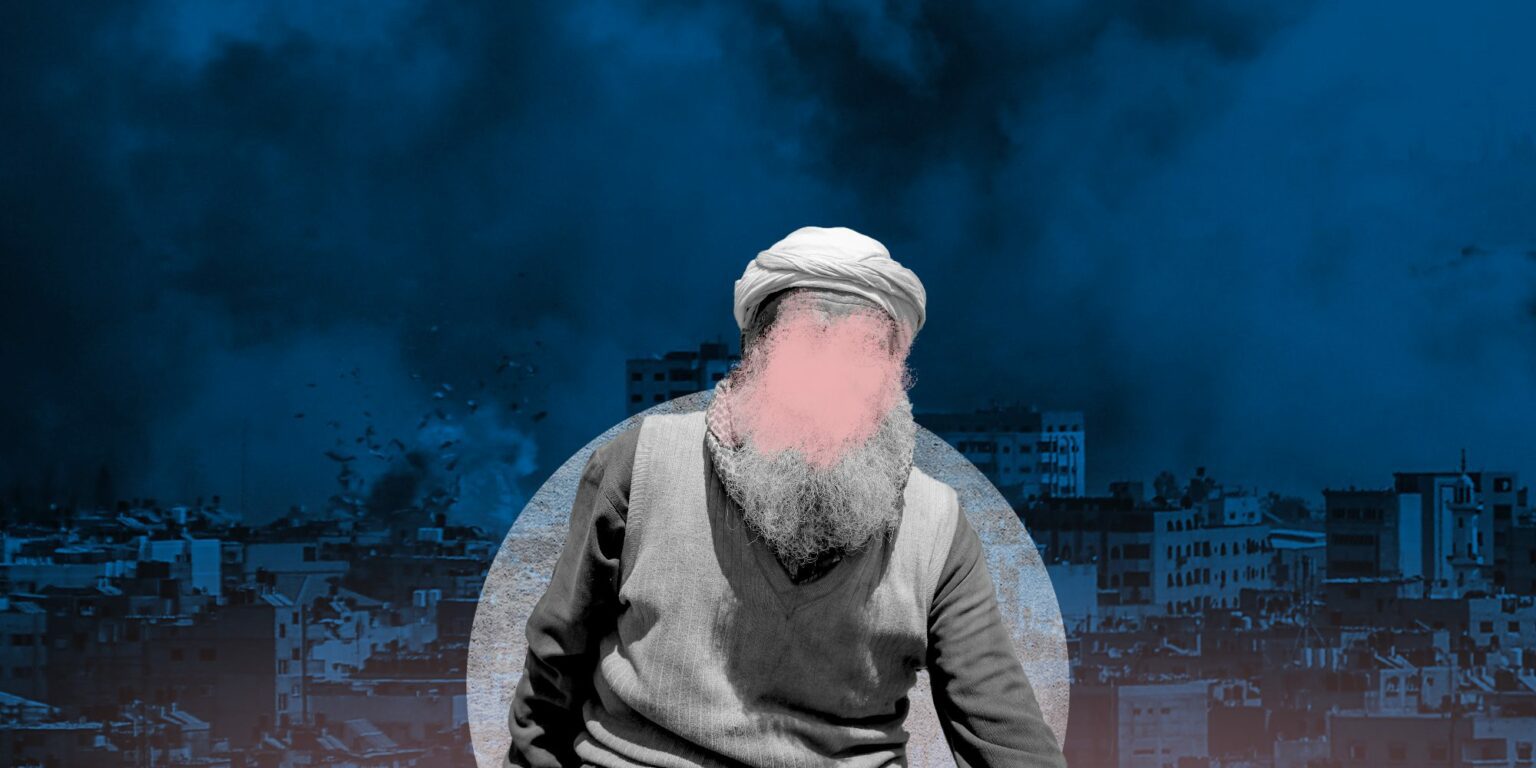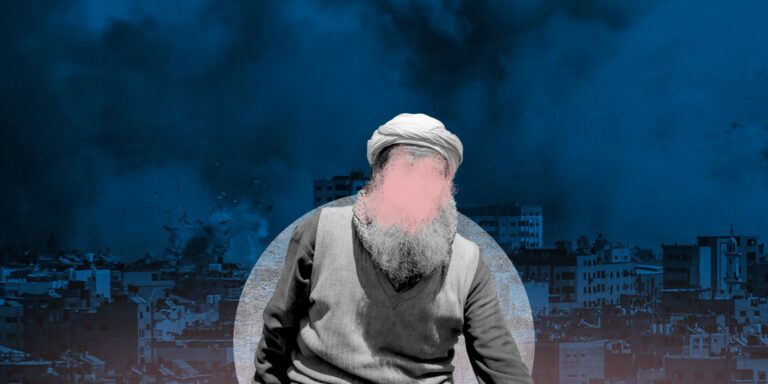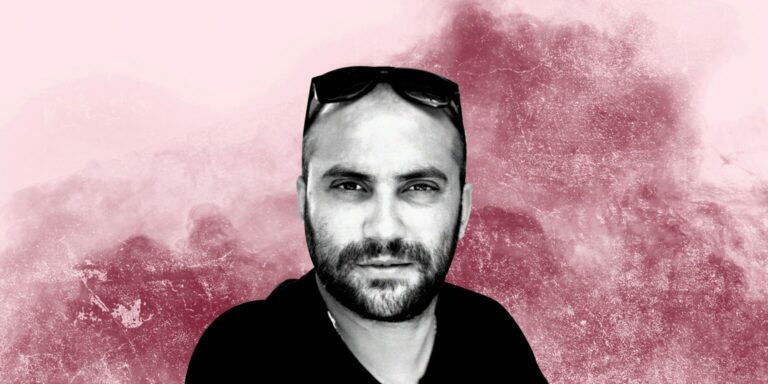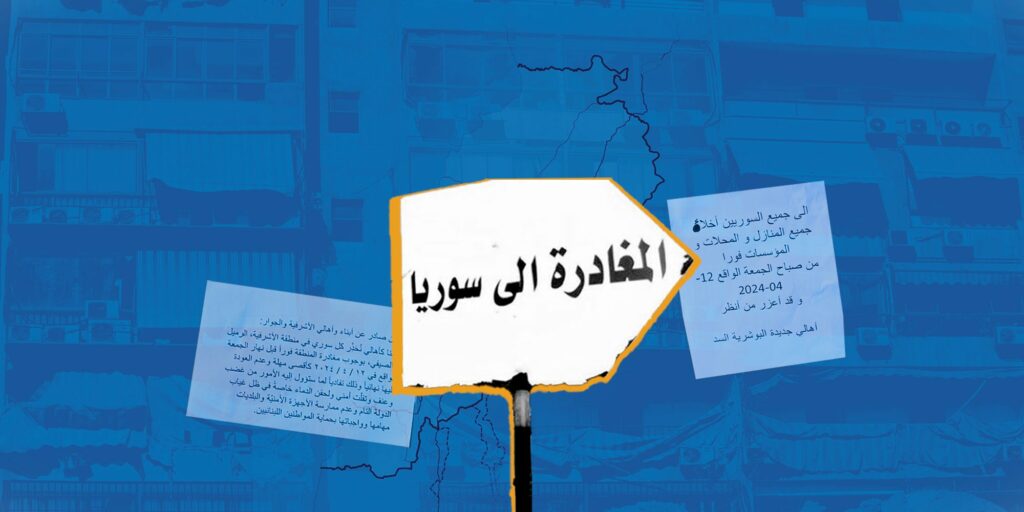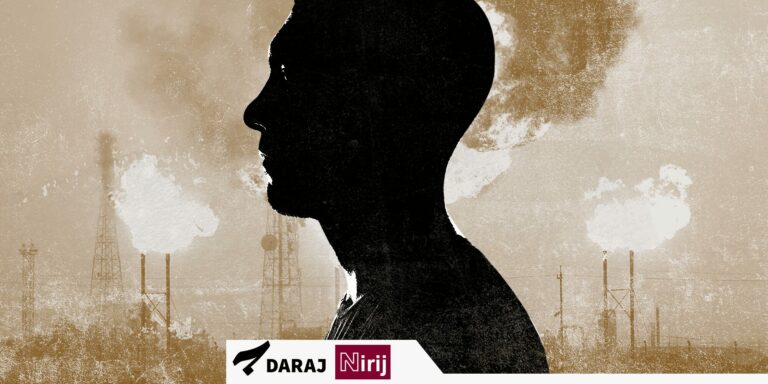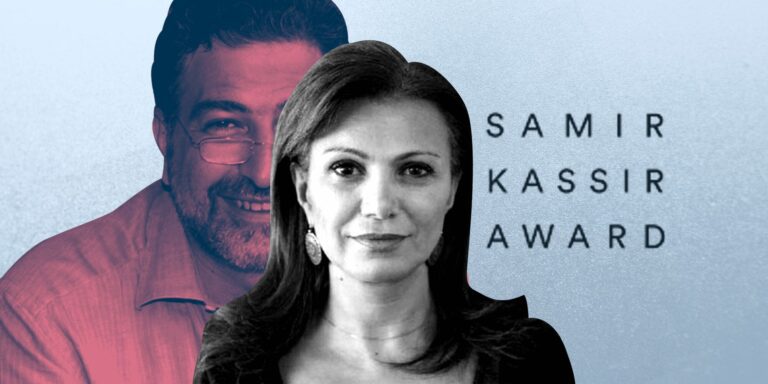On December 25, a paper leaflet dropped from an Israeli plane into the courtyard of the Abu Suleiman family home in the west of Khan Yunis city in the middle of the Gaza Strip. The leaflet contained a warning demanding residents to evacuate the city and head to Rafah and the Mawasi area. At that time, only the seventy-year-old Abu Yasser and his wife Umm Yasser, 67, were in the house. Both are elderly and suffering from Alzheimer’s disease. Their young son, Karim, went out to find a way to transport and evacuate his parents.
Over five hours later, Karim went back home and did not find his parents, despite having locked the door securely to prevent them from leaving during the shelling and facing death.
Karim searched long for his parents around his house and asked many of his neighbors about them but could not find them. He was forced to flee to the Mawasi area west of Khan Yunis without them due to the intensifying Israeli shelling around his neighborhood.
A day later, Karim returned to the vicinity of his home and began a new search for his parents. One neighbor told him that they had gone to the Mawasi area, but his efforts to find them there were unsuccessful, and he returned again to the refugee tent without them.
Karim repeated the search for his parents for twenty days without succeeding in finding them or knowing any news about them. He reported their condition to the civil defense, stating that they both suffer from Alzheimer’s disease.
Bad News on the Horizon
After days of heavy searching, Karim received the bad news from the civil defense: the body of his seventy-year-old father had been found, with no trace of his mother’s, in a place east of their home, and it appeared that he was killed after being hit by an Israeli missile.
Karim quickly went to Nasser Medical Complex and identified his father’s body through his ID card. He took the body with his relatives and buried it in the family cemetery.
The son was not at peace yet, as his mother’s fate remained unknown. He began a new search journey amid continuous shelling and surrounding fear.
Karim learned from the civil defense that his mother, who also suffered from Alzheimer’s, was martyred by the same missile, and someone had taken her to the hospital before burying her there.
The son learned from people who had seen his parents before their martyrdom that they had lost their way while leaving the house, and then an Israeli plane shelled them and killed them instantly, despite them being elderly and showing signs of Alzheimer’s.
Alzheimer’s symptoms include frequent forgetfulness, problems in determining directions, disorders in executive tasks (such as planning, organizing, arranging thoughts, having unrealistic thoughts), and even speech disorders.
The World Health Organization (WHO) explains that more than 55 million people worldwide suffer from dementia, with Alzheimer’s being its most common form. About 60 to 70 percent of people with dementia have Alzheimer’s, which constitutes 30 million patients.
Dementia, and recently Alzheimer’s, are among the main causes of disability and dependence on others among the elderly.
Elderly Alzheimer’s Patient Under Arrest
Abu Yasser and his wife were not the only Alzheimer’s patients targeted by the Israeli army; Israeli soldiers had previously arrested an elderly Palestinian woman suffering from the same disease, considering her an “illegal combatant.” They transferred her to Damon Prison in northern Israel, where she stayed for nearly two months before being released following an appeal.
The Hebrew newspaper Haaretz revealed that the patient’s name is 82-year-old Fahmiah Al-Khalidi. The Israeli army arrested her in early December at a school in Gaza, where she had taken refuge after fleeing her home due to the shelling. The prison to which she was transferred refused a request made by a lawyer from the Israeli organization Physicians for Human Rights to meet her. She was released two weeks ago.
The newspaper explained that several details related to the imprisonment of Al-Khalidi, born in 1942, are still unknown because she has not been able to recount what happened to her since her release. Despite having a full-time caregiver due to her health condition since her children live abroad, the caregiver was also arrested and not released with her.
According to the newspaper, Al-Khalidi’s children learned about their mother’s arrest from neighbors, but they could not find out her location because Israel has refused to provide any information about the whereabouts of detainees to families or human rights organizations since the start of the war on Gaza.
Physicians for Human Rights learned by chance that Al-Khalidi was being held in Damon Prison. However, a lawyer from another organization, who was visiting female prisoners from the West Bank, learned from them about an elderly prisoner from Gaza who does not speak and moves with difficulty. The lawyer informed the family and conveyed Al-Khalidi’s personal information to the organization.
“Illegal Combatants”
On December 27, Mona Abu Al-Younis Al-Khatib, a lawyer for Physicians for Human Rights, requested to meet the elderly woman from Gaza. However, the Damon Prison administration refused the request, claiming that “prisoners are not allowed to meet a lawyer until February 21, 2024, by order of the official in charge.”
The newspaper pointed out that attorney Tamir Blank presented a medical report issued in June of last year, stating that Al-Khalidi suffers from a range of medical problems and has difficulty walking, in addition to having Alzheimer’s disease. He obtained an appointment to meet her on January 21.
However, Al-Khalidi was released on January 19 from Damon Prison along with five other women who were considered “illegal combatants.” Physicians for Human Rights learned about Al-Khalidi’s release once again by chance after a lawyer from another organization visiting the prison learned that six women from Gaza had been released, including Al-Khalidi.
Various media reports provided some information about Al-Khalidi’s situation in prison. One of the released women in Gaza said that Al-Khalidi sometimes went to the prison clinic with her hands cuffed and that she was in a wheelchair. Another prisoner said that Al-Khalidi was not the only elderly and sick prisoner there.
Naji Abbas, director of the prisoners’ department at Physicians for Human Rights, who was in regular contact with Al-Khalidi’s family and coordinated his organization’s handling of her case, said that his organization received reports of other people in their eighties and nineties who were arrested by the Israeli army and not contacted by their families.
The Israeli Prison Service told the newspaper that “the prisoner was received in the prison service on December 10, 2023, and was detained for 30 days until her release. She was held during that period according to the law.” However, witness accounts contradict the Prison Service’s statement, indicating that she was released on January 19, more than 30 days after her arrival at the prison.
The Prison Service did not respond to the newspaper’s inquiry about whether Al-Khaldi underwent a medical examination and if it was based on this examination that she was considered an illegal combatant and not allowed to meet a lawyer. They also did not respond to the inquiry about whether the prison authorities found it strange to consider a woman in her condition an illegal combatant.

